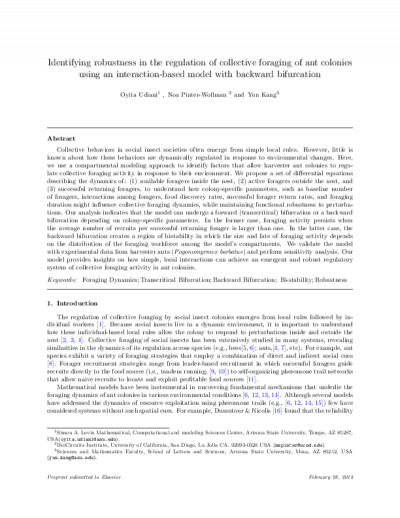A novel approach to study task organization in animal groups

In Chapters 2 and 3, I demonstrate how this approach provides novel insights into factors that shape the flexibility and robustness of task organization in harvester ant colonies (Pogonomyrmex barbatus). My results show that the degree to which colonies can respond to work in fluctuating environments depends on how individuals weigh the costs of activity and update their behavior in response to social information. In Chapter 4, I introduce a mathematical framework to study the emergence of collective organization in heterogenous groups. My approach, which is based on the theory of multi-agent systems, focuses on myopic agents whose behavior emerges out of an independent valuation of alternative choices in a given work environment. The product of this dynamic is an equilibrium organization in which agents perform different tasks (or abstain from work) with an analytically defined set of threshold probabilities. The framework is minimally developed, but can be extended to include other factors known to affect task decisions including individual experience and social facilitation. This research contributes a novel approach to developing (and analyzing) models of task organization that can be applied in a broader range of contexts where animals cooperate.
- Author (aut): Udiani, Oyita
- Thesis advisor (ths): Kang, Yun
- Thesis advisor (ths): Fewell, Jennifer H
- Committee member: Janssen, Marcus A
- Committee member: Castillo-Chavez, Carlos
- Publisher (pbl): Arizona State University
